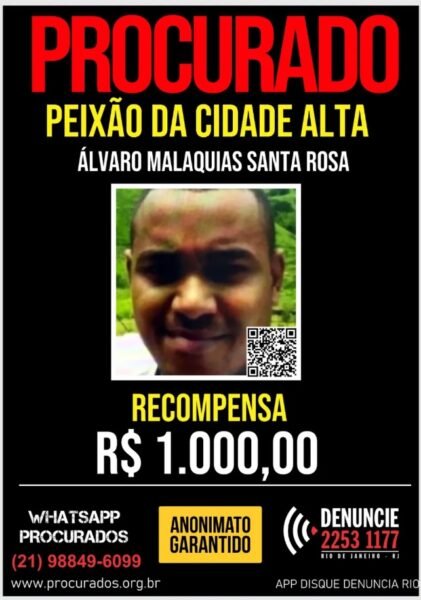The Rio de Janeiro Civil Police conducted an operation on Tuesday morning (10/06) to serve arrest and search-and-seizure warrants against members of the Third Pure Command (TCP), a criminal group operating in the area known as Complexo de Israel, in the northern zone. The police arrested 20 individuals and seized eight rifles, two pistols, grenades, Molotov cocktails, and narcotics. Residents reported intense gunfire, and videos circulating on social media showed bus and BRT drivers and passengers lying on the ground. Major expressways such as Avenida Brasil and Linha Vermelha were closed during the operation.
This Content Is Only For Subscribers
To unlock this content, subscribe to INTERLIRA Reports.
Operation Targets
According to the Civil Police, the action follows seven months of investigation. Authorities identified 44 individuals involved in drug trafficking in the Complexo de Israel who had no previous arrest warrants. The group targeted is led by Malaquias Santa Rosa, known as “Peixão,” one of the most notorious drug traffickers in the state. The faction operates in the communities of Vigário Geral, Parada de Lucas, Cidade Alta, Cinco Bocas, and Pica-Pau. According to the police, the gang uses barricades to control territory, drones to monitor security forces enforces curfews, monopolizes public services, and fosters religious intolerance.
Specialized Team
The investigation also revealed the formation of a TCP unit specialized in shooting down police helicopters. This group operated from strategic locations within the community, protected by concrete barriers and loopholes, positioned to fire on aircraft.Other TCP groups monitor police vehicles, torch buses, and organize staged protests aimed at disrupting police operations.
Traffic Problems
Avenida Brasil was closed in both directions near Penha, from 6:00 to approximately 7:40, Linha Vermelha was also closed down. Rio’s City Hall raised the alert to level 2 on a five-point scale—activated when there is a “risk of high-impact incidents in the city.” The operation affected train service on the Saracuruna branch line, suspending operations between Central do Brasil and Penha, and between Duque de Caxias and Gramacho. BRT services were suspended along the Transbrasil corridor.
Expressways
Armed violence has led to the partial or total closure of Avenida Brasil—one of Rio’s major expressways—on 11 occasions since the beginning of 2025. Linha Vermelha, which connects Baixada Fluminense to downtown Rio, has been closed four times in the same period. These statistics come from City Hall’s Operations and Resilience Center (COR). Closures are linked to police operations, shootouts, robberies, homicides, and attempted murders. The 2025 closures on Avenida Brasil are approaching the total number for 2024, which recorded 12. Linha Vermelha saw three closures last year.
BRT and Trains
COR reported that BRT service has already been interrupted seven times in 2025, including three on the same day—totaling five hours of service suspension across various routes. Train services connecting Baixada Fluminense to the city center have also been disrupted. According to SuperVia, there have been seven service interruptions this year due to shootings, all on the Saracuruna branch. In 2024, there were 16 such interruptions: 11 on the Saracuruna branch and five in Belford Roxo. In the first half of last year alone, 11 incidents were recorded (seven in Saracuruna, and four in Belford Roxo).
Analysis:
The recent Civil Police operation in the Complexo de Israel reveals the growing capabilities and territorial control of Rio de Janeiro’s criminal groups, particularly the Third Pure Command (TCP). The faction’s use of military-grade weapons, drones, barricades, and even specialized teams trained to shoot at police helicopters shows a troubling level of organization and tactical sophistication. The group’s control over public services, imposition of curfews, and promotion of religious intolerance reflect a strategy of social control that goes well beyond drug trafficking and points to the presence of parallel powers in vulnerable communities.
The repeated disruptions to critical infrastructure — including the closure of Avenida Brasil, Linha Vermelha, BRT corridors, and train lines — show how armed violence is increasingly affecting daily life and citywide mobility. The frequency of these incidents in 2025 already approaches the totals seen in 2024, suggesting a worsening trend. What began as isolated public security threats has turned into a broader urban challenge, putting pressure on authorities.
Sources: G1 [1], [2], O Globo [1], [2]; A Folha de SP; Extra.




